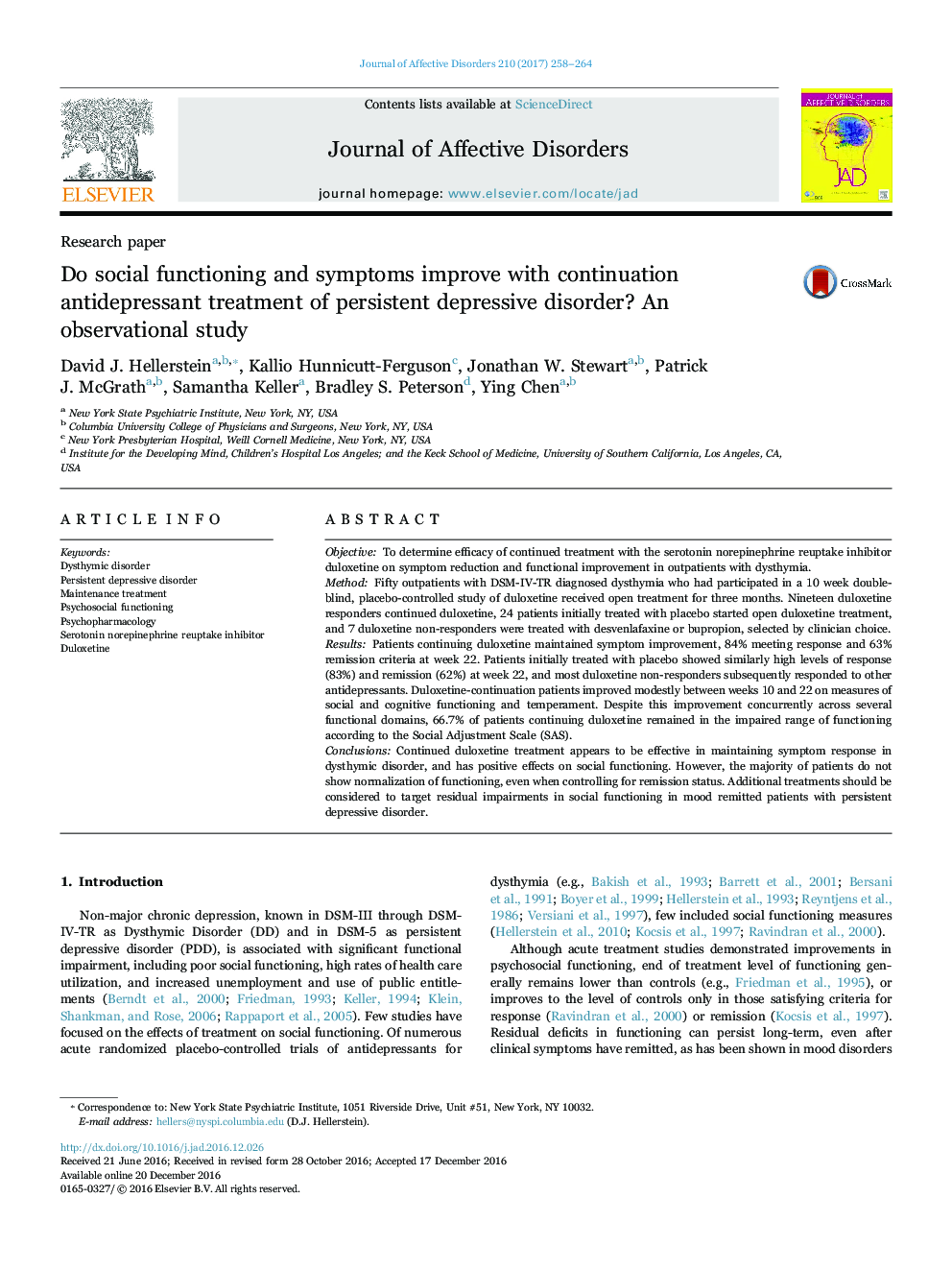| کد مقاله | کد نشریه | سال انتشار | مقاله انگلیسی | نسخه تمام متن |
|---|---|---|---|---|
| 5722400 | 1608115 | 2017 | 7 صفحه PDF | دانلود رایگان |
- Continued duloxetine treatment appears to maintain symptom response in dysthymic disorder, and improves social functioning.
- However, the majority of patients do not show normalization of functioning, even when controlling for remission status.
- Additional treatments should be considered to target residual social impairment in mood remitted persistent depression.
ObjectiveTo determine efficacy of continued treatment with the serotonin norepinephrine reuptake inhibitor duloxetine on symptom reduction and functional improvement in outpatients with dysthymia.MethodFifty outpatients with DSM-IV-TR diagnosed dysthymia who had participated in a 10 week double-blind, placebo-controlled study of duloxetine received open treatment for three months. Nineteen duloxetine responders continued duloxetine, 24 patients initially treated with placebo started open duloxetine treatment, and 7 duloxetine non-responders were treated with desvenlafaxine or bupropion, selected by clinician choice.ResultsPatients continuing duloxetine maintained symptom improvement, 84% meeting response and 63% remission criteria at week 22. Patients initially treated with placebo showed similarly high levels of response (83%) and remission (62%) at week 22, and most duloxetine non-responders subsequently responded to other antidepressants. Duloxetine-continuation patients improved modestly between weeks 10 and 22 on measures of social and cognitive functioning and temperament. Despite this improvement concurrently across several functional domains, 66.7% of patients continuing duloxetine remained in the impaired range of functioning according to the Social Adjustment Scale (SAS).ConclusionsContinued duloxetine treatment appears to be effective in maintaining symptom response in dysthymic disorder, and has positive effects on social functioning. However, the majority of patients do not show normalization of functioning, even when controlling for remission status. Additional treatments should be considered to target residual impairments in social functioning in mood remitted patients with persistent depressive disorder.
Journal: Journal of Affective Disorders - Volume 210, 1 March 2017, Pages 258-264
